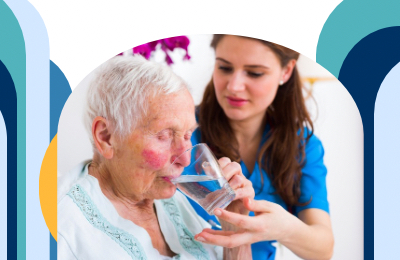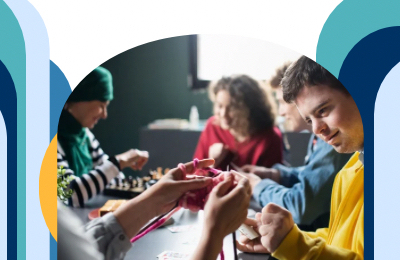Your Guide to Subject Choices for QQI Level 5 Healthcare Support (5M4339)
🧑⚕️ About This Major Award
Award Title: Healthcare Support
Award Code: 5M4339
Level: QQI Level 5
Total Credit Requirement: 120 Credits
This major award is highly beneficial for individuals pursuing a career as a Healthcare Assistant. It is a requirement for employment in a range of healthcare settings, including nursing homes, hospitals, community care, and home support services. The qualification ensures that healthcare staff are equipped with the necessary training to provide safe, person-centred, and high-quality care in line with best practices and professional standards.
📘 Core Certificate Requirements
Learners must complete a combination of mandatory and elective modules to make up the 120 credits. The award typically includes:
✅ Required Core Modules (Offered at Our Centre):
- Care Skills (5N2770) – 15 credits
Studying care skills (as part of a major award) is essential for current or upcoming healthcare assistants, as it equips them with the practical knowledge needed to support individuals with a wide range of physical and personal care needs. This training covers key areas such as assisting with mobility, personal hygiene, toileting, dressing, and nutrition. It also emphasises the importance of communication, empathy, and respecting the dignity and independence of each individual. These skills are vital for delivering high-quality, and contemporary healthcare service provision.
In addition to building hands-on competence, learning care skills helps healthcare workers to respond appropriately to changes in a person’s condition, work confidently as part of the multi-disciplinary team (MDT), and follow best practices in terms of patient safety and comfort. Overall, this course module plays a crucial role in preparing individuals for the realities of frontline healthcare work, ensuring they are ready to meet the needs of patients in a safe, respectful, and professional manner.
- Care Support (5N0758) – 15 credits
Studying care support is an important part of training for a Healthcare Assistant, as it helps develop the understanding, attitude, and approach needed to provide meaningful and effective care. This subject focuses on the emotional, psychological, and social aspects of supporting people who may be vulnerable, elderly, ill, or living with disabilities. It teaches healthcare assistants how to build positive relationships with service users, promote independence, and support their dignity and choices in day-to-day life.
- Safety and Health at Work (5N1794) – 15 credits
The Safety and Health at Work course module is a key component of the major award in Healthcare Support, designed to help healthcare workers understand how to maintain a safe working environment for themselves, their colleagues, and the people they care for. This module covers important topics such as identifying workplace hazards, understanding health and safety legislation, using personal protective equipment (PPE), proper manual handling techniques, infection prevention and control, and responding to emergencies. For healthcare assistants, this knowledge is essential in reducing risks, preventing injury or illness, and promoting a culture of safety and accountability in healthcare settings. It also ensures that care is delivered in line with national standards and legal requirements.
- Communications (5N0690) – 15 credits
The Communications course module is designed to help healthcare workers develop the essential skills needed to communicate effectively with patients, families, and colleagues. In a healthcare setting, clear and respectful communication is key to delivering safe, person-centred care. This module covers both verbal and non-verbal communication, active listening, written communication (like care plans or reports), and how to adapt communication styles to suit different individuals, including those with speech, hearing, or cognitive difficulties.
It also focuses on the importance of confidentiality, empathy, and professionalism in all interactions. By completing this module, healthcare workers gain the confidence to build trust with service users, handle sensitive information appropriately, and work as part of a team in a supportive and respectful manner.
**These 4 modules alone bring you to 60 credits.
🧰 Optional Modules Offered (Choose one of these options to gain 15 credits)
- Work Experience (5N1356) – 15 credits
The Work Experience module gives healthcare learners the opportunity to apply their learning in a real healthcare environment. Over the course of at least 110 hours placement, learners complete practical and hands-on experience in settings such as nursing homes, hospitals, or home care services. This placement allows them to develop practical care skills, observe professional standards, and understand the day-to-day responsibilities of a healthcare assistant. It also helps build confidence, communication skills, and a greater awareness of the needs of service users. Completing this module is essential for bridging the gap between theory and practice.
- Work Practice (5N1433) – 15 credits
The Work Practices module involves a more extended placement – lasting a minimum of two months – to give learners a deeper understanding of the healthcare environment. This module focuses on professional behaviour, teamwork, time management, and following workplace policies and procedures. During this time, students are expected to reflect on their experiences, identify learning goals, and take on greater responsibility in their role. It helps them build real-world competence and prepares them for the expectations of full-time employment in the healthcare sector. The module also encourages personal development and a strong sense of accountability in care delivery.
**The four course requirement modules + one of the above work experience/practical modules will lead to a total of 75 credits.
🧰 Optional Modules Offered (Choose from these to complete 120 credits):
Here are the available extra modules you can choose from at our centre to make up the full 120 credits:
- Anatomy and Physiology (5N0749) – 15 credits
Studying anatomy and physiology is important for healthcare assistants because it provides a basic understanding of how the human body works.This knowledge helps healthcare assistants recognise changes in a person’s condition, and communicate changes more effectively with nurses and other healthcare professionals. It also supports safe, informed, and person-centred care by giving healthcare assistants the background they need to respond appropriately to the physical needs of those they support.
- Human Growth and Development (5N1279) – 15 credits
Studying human growth and development is useful for healthcare assistants because it helps them understand the physical, emotional, and cognitive changes that occur throughout a person’s life. This knowledge enables assistants to provide age-appropriate care, anticipate the needs of individuals at different stages of life, and support their well-being effectively. It also helps healthcare assistants recognize normal developmental milestones and identify any potential concerns or delays in growth, allowing for early intervention and appropriate care planning by more senior healthcare professionals.
- Social Studies (5N1370) – 15 credits
The Social Studies module is useful for healthcare assistants as it helps them understand the broader social factors that affect the lives of the individuals they care for. By studying sociology, social stratification, and the impact of discrimination, healthcare assistants can gain deeper insight into how factors like class, gender, race, and cultural background influence a person’s health and well-being. Understanding socialization and the role of family and community helps healthcare assistants build stronger, more empathetic connections with service users, considering their social context and needs.
- Intellectual Disability Studies (5N1652) – 15 credits
Healthcare assistants study Intellectual Disability Studies to gain a better understanding of the needs, abilities, and rights of individuals with intellectual disabilities. This course module helps them learn how to provide respectful, person-centred care that promotes independence, dignity, and inclusion. It also covers the social and medical models of disability, effective communication strategies, and how to support individuals in daily living while recognising their unique strengths. By studying this subject, healthcare assistants are better prepared to support individuals with intellectual disabilities in a compassionate, empowering, and professional manner across various care settings.
- Infection Prevention and Control (5N3734) – 15 credits
Infection Prevention and Control is a vital course module for both upcoming and current healthcare assistants, as it equips them with the knowledge and skills needed to minimise the risk of infection in care settings. Healthcare assistants often work with individuals who are more vulnerable to illness, making it essential to maintain the highest standards of hygiene and safety. A key focus of this module is the use of standard precautions—including hand hygiene, the correct use of personal protective equipment (PPE), safe handling of waste, and proper cleaning practices.
These precautions are critical not only in protecting service users, but also in safeguarding healthcare workers and visitors from potential infection. By applying these practices consistently, healthcare assistants help prevent the spread of harmful bacteria and viruses, ensuring a safer and healthier environment for everyone involved in the delivery of care.
- Care of the Older Person (5N2706) – 15 credits
Studying Care of the Older Person is essential for upcoming and current healthcare assistants because a significant part of their role often involves supporting older adults. This module helps healthcare assistants understand the physical, emotional, and social changes that come with ageing, as well as common age-related conditions such as dementia, arthritis, and reduced mobility. It also emphasizes the importance of promoting independence, dignity, and respect in every aspect of care.
By studying this subject, healthcare assistants learn how to meet the specific needs of older people in a safe, compassionate, and person-centred way. It also helps them develop greater empathy and awareness of the challenges faced by older adults, enabling them to provide support that improves quality of life and encourages positive ageing. This knowledge is vital across a range of care settings, including nursing homes, hospitals, and community settings.
- Activities of Living Patient Care (5N3707) – 15 credits
Activities of Living Patient Care is very useful for both new and current healthcare assistants because it teaches the basic care skills needed to support people with everyday tasks. These tasks include washing, dressing, eating, using the toilet, oral hygiene, movement and transfers, and helping to keep their space clean and safe.
The course also shows healthcare assistants how to complete physical observations, such as checking temperature, pulse, respirations, weight, urinalysis and fluid balance monitoring. This course module may lead to more advanced healthcare assistant roles, if further organisational competencies are completed (e.g. HSEland physical observations competency, and competency sign-off by nurse if also organisationally required).
- Nutrition (5N2006) – 15 credits
Studying nutrition is useful for upcoming and current healthcare assistants because it helps them understand the role of healthy eating in maintaining and improving a person’s overall health. Healthcare assistants often support people who may have specific dietary needs due to age, illness, or medical conditions. By learning about nutrition, they can help prepare or serve balanced meals, support feeding where needed, and promote good eating habits.
- Care Provision and Practice (5N2705) – 15 credits
The Care Provision and Practice module is essential for healthcare students, as it equips them with the skills and knowledge to meet the diverse care needs of specific groups in the community, including children, adolescents, adults, older people, and those with special needs. It focuses on supporting their physical, emotional, social, and intellectual well-being, while helping students understand the important role of care workers in both statutory and voluntary services. The module emphasizes the caring qualities necessary for working with different client groups, such as empathy, respect, and active listening, while ensuring privacy, dignity, independence, and a positive self-image for those in care. Learners also learn practical care support skills, such as the correct use of basic tools and equipment, and the therapeutic value of recreational and social activities. Ultimately, it prepares healthcare assistants to provide compassionate, therapeutic and quality based care.
- Palliative Care Support (5N3769) – 15 credits
The Palliative Care course module focuses on providing specialized care for individuals with life-limiting or terminal illnesses. It teaches healthcare workers how to manage symptoms, improve the quality of life, and offer emotional, psychological, and spiritual support to both the patient and their family. The course covers important aspects such as physical care support, communication skills for discussing sensitive topics, and supporting patients through their palliative journey. Healthcare workers also learn to address the physical, emotional, and social needs of patients in a compassionate, respectful, and person-centred manner. Overall, the course equips healthcare workers with the knowledge and skills necessary to offer dignified and holistic care to those throughout their palliative journey.
- Rehabilitation Support (5N3775) – 15 credits
The Rehabilitation Support course module for healthcare assistants is designed to help individuals regain independence and recover after illness, injury, or surgery. It teaches healthcare assistants how to support mobility, assist with the use of assistive devices, and provide crucial emotional and psychological support throughout the recovery process. The module emphasizes the importance of creating a nurturing environment, motivating patients, and fostering their independence. Ultimately, it equips healthcare assistants with the skills to deliver person-centred care to individuals with diverse rehabilitation needs, while collaborating with other healthcare professionals to enhance the patient’s overall well-being.
- Nursing Theory and Practice (5N4325) – 15 credits
These modules are ideal to round out your credits and give you a specialist edge in areas like elder care or hygiene protocols.
🧮 Sample Subject Combinations
➤ Example 1 – General Healthcare Support
- Care Skills
- Care Support
- Safety and Health at Work
- Communications
- Work Experience
- Infection Prevention and Control
- Care of the Older Person
- Palliative Care Support
(= 120 credits)
➤ Example 2 – Nursing Fundamentals
- Care Skills
- Care Support
- Work Practice
- Communications
- Nursing Theory and Practice
- Infection Prevention and Control
- Human Growth & Development
- Anatomy & Physiology
(= 120 credits with 5-credit module included)
🎓 Progression Opportunities
This award qualifies you to:
- Work as a Healthcare Assistant in public/private settings
- Enter Level 6 Healthcare Support or Supervisory courses
- Progress to nursing studies or social care programs in further/higher education via the QQI route
📝 Subject Choice Tips
- ✅ Pick modules that match your ideal work environment – hospitals vs. home support.
- ✅ Add value with practical modules like Infection Control and Nutrition.
- ❗Make sure total credits add up to exactly 120.




















